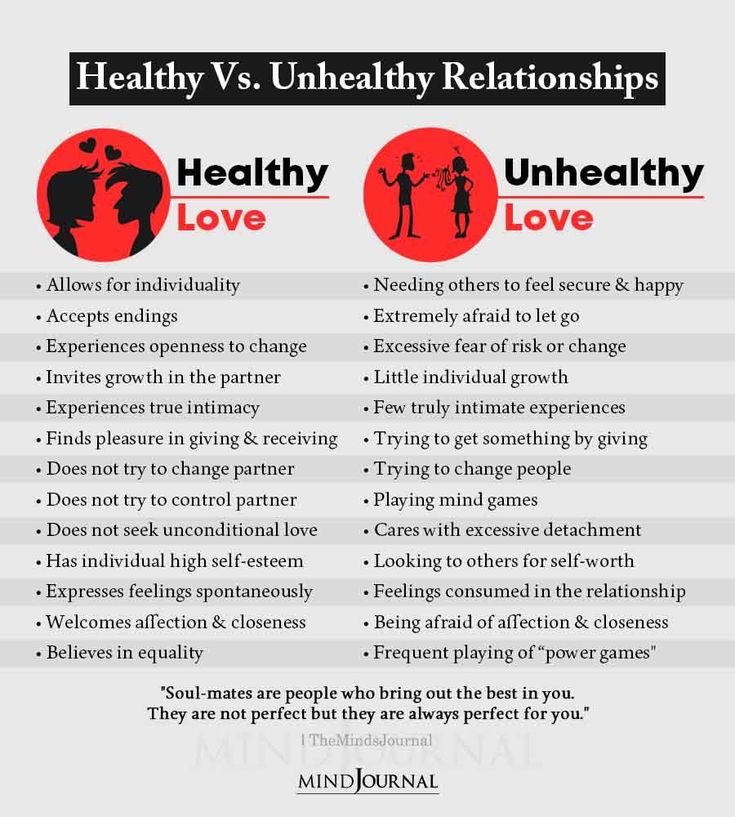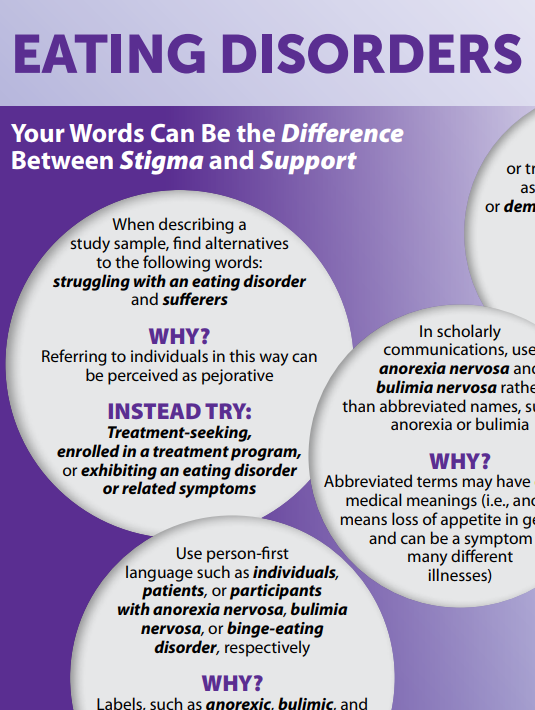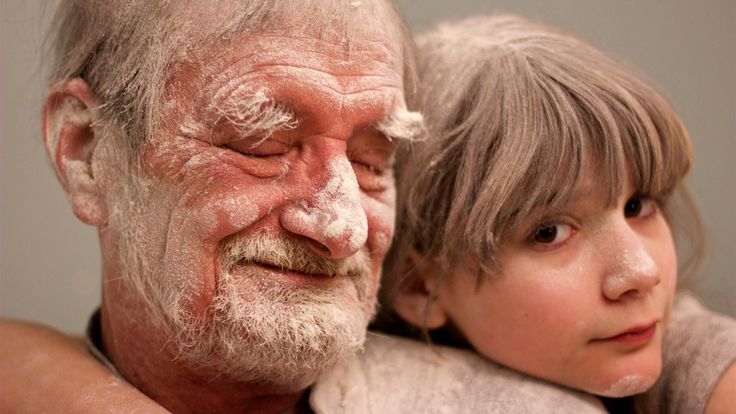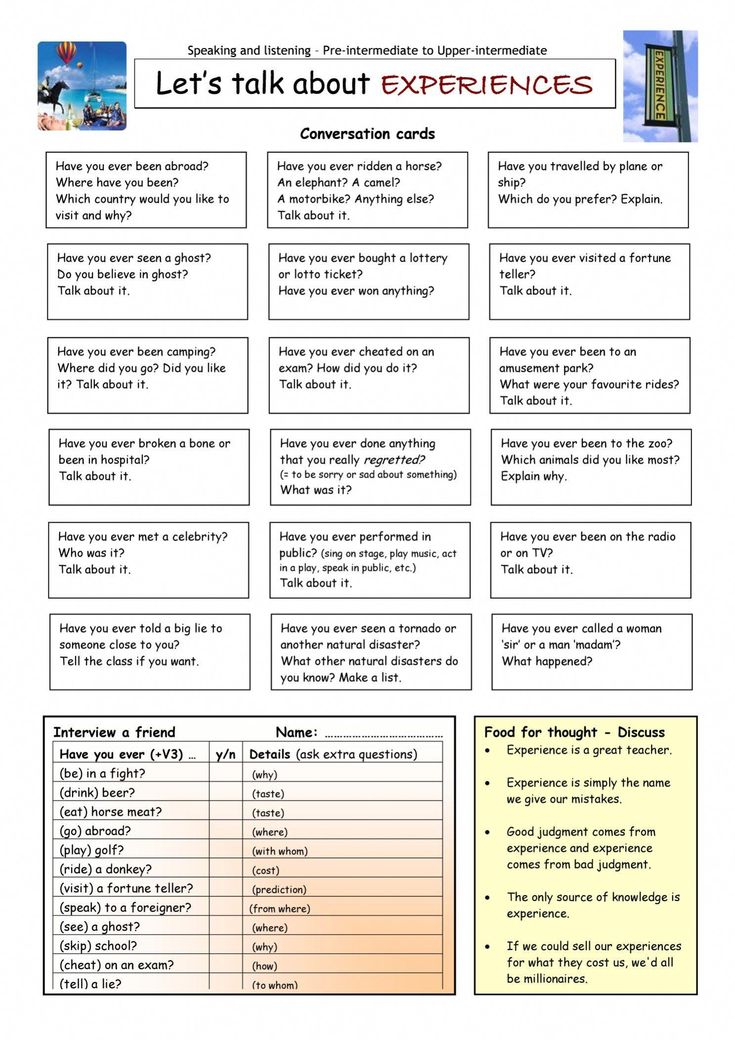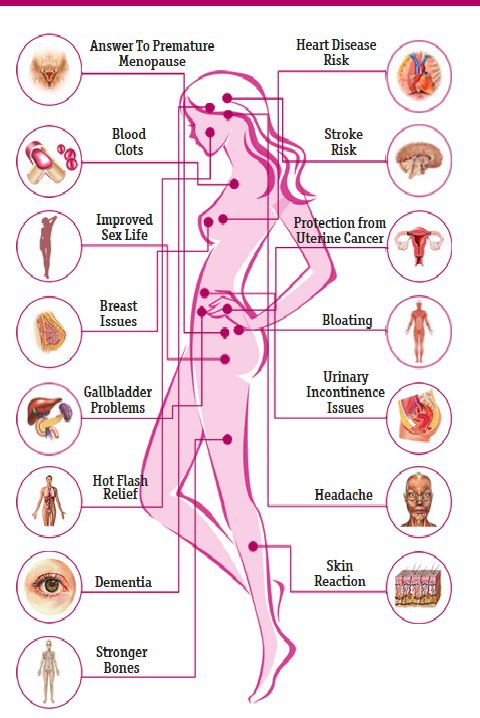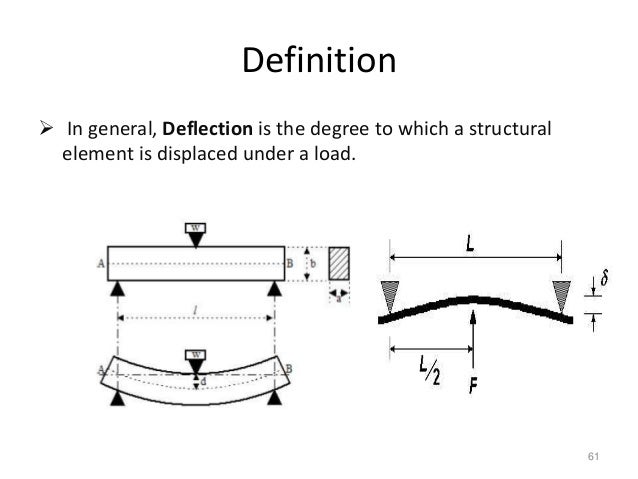Stay at home mom depression symptoms
What Causes Stay at Home Mom Depression?
Being a stay at home parent is tough. This is just as much a job as any 9-5 position, but as a parent, you can’t clock out at the end of the day. It’s non-stop stress met with non-stop demands, and the pressure of it all can be overwhelming.
That is why many parents experience stay at home mom depression. If you have been feeling sad, helpless, overburdened and under-appreciated, know that you are not alone. Here we will look into some common causes of stay at home mom depression, along with solutions available for you.
Note: This condition is commonly referred to as “stay at home mom depression,” but it can affect fathers as well. The causes, symptoms and treatments we discuss in this guide apply to all stay at home parents, not just women.
Causes of Stay at Home Mom DepressionStay at home mom depression can come from many sources. It may be general depression that intensifies with parenting responsibilities. It may also come specifically from the responsibilities stay at home parents face. Here are some potential causes of SAHM depression:
- Feeling like a failure
- Comparing yourself to other parents, especially on social media
- Having a never-ending to-do list
- Financial stress
- Criticism from friends and family members
- Difficulties with your child, such as defiance or lack of focus
- Lack of recognition or appreciation
- Feeling unfulfilled
- Body image issues
- Striving for perfection in an imperfect world
These issues become significantly worse when you see other parents online. As you view their filtered reality, you immediately begin to question your own. How does her house always look so clean? Why are their children so well behaved? How does he afford all of that? These comparisons can quickly spark stay at home mom depression, in addition to the general pressures this position brings about.
So, how do you know if you are depressed? The fact that you’re reading this shows that you’re probably experiencing some form of stay at home mom depression. Nevertheless, here are some other signs to watch out for:
- Feeling fatigued throughout the day, even after a full night of sleep
- Not having motivation to do anything – run errands, clean, cook, shower, etc.
- Feeling overwhelmed by simple tasks
- Feeling helpless and alone
- Thoughts of suicide
- Changes in appetite or weight
- Difficulty sleeping at night
- Mood swings and irritability
- Unexpected emotional outbursts (crying for what seems like no reason)
Parenthood comes with great joy and great responsibility. If the responsibility you’re facing is shielding you from the joy, you may have stay at home mom depression.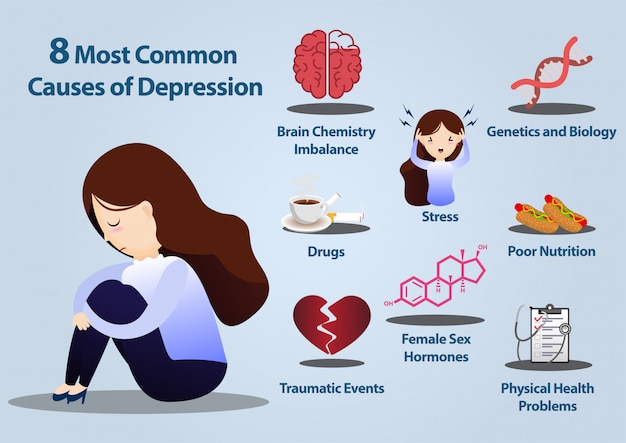 Thankfully, there are treatments available to guide you over this hurdle.
Thankfully, there are treatments available to guide you over this hurdle.
Depression treatment is designed to reverse negative thought patterns and improve your quality of life. Are you someone who jumps to conclusions? Do you put extra pressure on yourself? Are you in a constant state of comparison? Through depression counseling, you can pinpoint what is causing your depression and find personalized ways to treat the causes.
In the second part of this guide, we will explain types of depression treatment for stay at home moms.
Continue to Part 2
Why Stay-At-Home Moms Feel So Sad
Picture this: It’s just shy of your first-year job anniversary; it’s review time. Some of the feedback you’ve gotten so far from your boss has been pretty negative, and you’ve had to pull more all-nighters than you can count. Oh, and you haven’t actually been paid—at all—yet. But you are "sooo grateful" to have this job.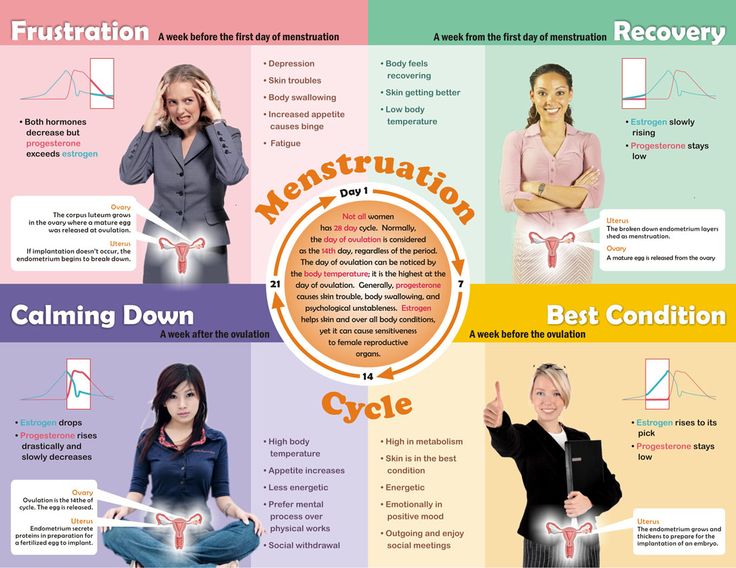
That’s because the job is being a stay-at-home mom (aka SAHM).
Or as one woman on a Facebook thread described it, you’re in a “wartime hellhole with four hours of peace in between.”
Yet, for all of the dark moments, SAHMs almost always agree, they’re fortunate to be able to be home. Their raves, complaints, and confessions often punctuated with a, ‘Granted, I’m lucky.’
But it might just be that inner voice chirping on about how grateful you should be that’s contributing to the depression wave among stay-at-home moms. According to a 2012 Gallup poll of more than 60,000 U.S. women, non-employed moms of young children are more likely to report anger and sadness, and they are also more likely to have ever been diagnosed with depression than their employed counterparts.
Even when controlled for age, stay-at-home moms were still more likely to have emotional difficulties than employed moms. They were less likely to describe themselves as thriving or to say they smiled a lot or laughed a lot yesterday.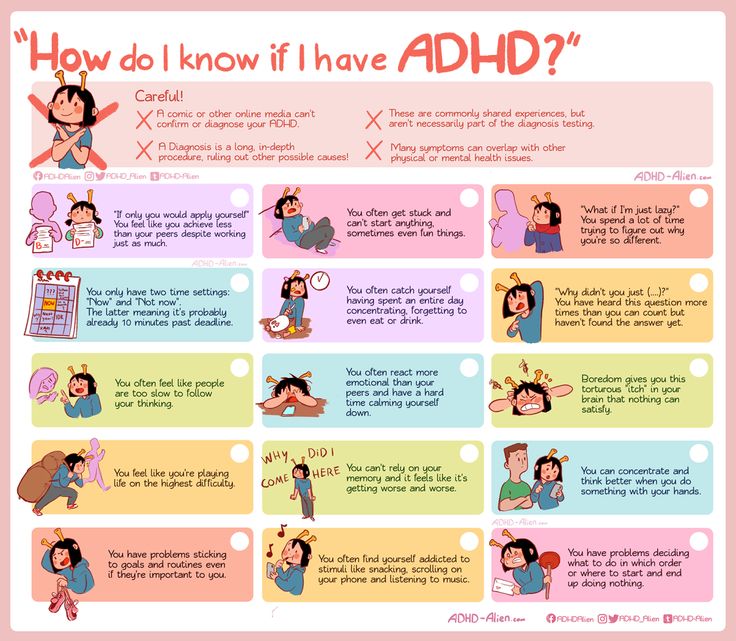
The Actual Job Is Really Demanding
“Being a stay-at-home mom can be very stressful,” says Laurel Mellin, PhD, associate professor of Family and Community Medicine at the School of Medicine at the University of California, San Francisco and the author of The Stress Overload Solution.
Stay-at-home moms often not only take on the bulk of childcare duties, they’re also doing more of the errands, housework, and repairs by default since they’re the ones who are home. And when chores pile up, the partner who is working sometimes doesn’t understand why. SAHMs report hearing, "But you were home all day."
Structure is a big challenge, too, and you’re not always in control of when things will happen. Trying to stick to a schedule might make you feel in control when it works; but when a tantrum or a nap or the dryer breaking throws everything off, your whole day can go into a tailspin. Being flexible will help you recover.
There’s Virtually No Break From The Routine
Not only is there so much to do, it’s often the same tasks on repeat, making one day feel almost exactly like the next without a break.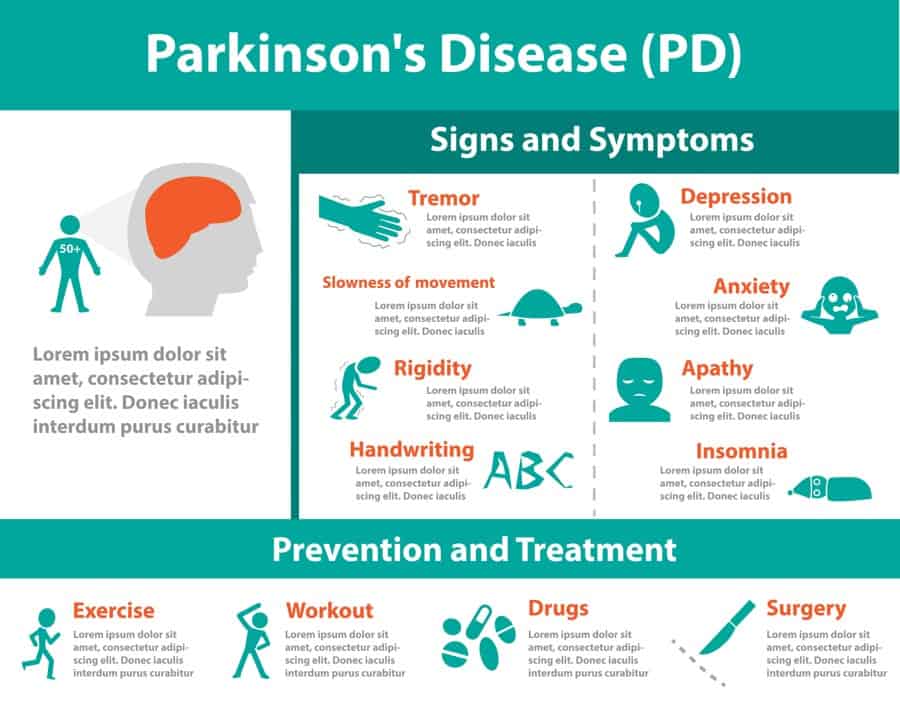 And, there isn’t the kind of distraction that a job brings, says Mellin. For working mothers, there’s the challenge of juggling these two major tasks, but the advantage is each gives the other some perspective. Stay-at-home moms don’t have that kind of ongoing context.
And, there isn’t the kind of distraction that a job brings, says Mellin. For working mothers, there’s the challenge of juggling these two major tasks, but the advantage is each gives the other some perspective. Stay-at-home moms don’t have that kind of ongoing context.
You Work Alone
From one standpoint, it can be perceived as a privilege to stay at home, notes Dana Dorfman, PhD, a New York City psychotherapist and co-host of the weekly podcast Two Moms on the Couch. Moms who juggle jobs and childcare may even be a bit jealous of their stay at home counterparts, she says.
“But moms who stay home full-time tend to report feelings of isolation, a loss of identity, and a loss of social interaction," Dorfman says. “It can be hard to feel a sense of accomplishment when this is not always observable.”
Choice Is An Illusion
The most unhappy stay-at-home moms are those who want to work but are not working, says Kristin Calverley, PhD, a psychologist and clinical assistant professor with the McGovern Medical School at UTHealth and UT Physicians in Houston. “Some women who want to work may not work because of family or cultural pressures to stay home, out of a sense of duty, or because they cannot afford the cost of childcare,” she says. “These women tend to be more depressed than the women who choose not to work and who elect to stay home.”
“Some women who want to work may not work because of family or cultural pressures to stay home, out of a sense of duty, or because they cannot afford the cost of childcare,” she says. “These women tend to be more depressed than the women who choose not to work and who elect to stay home.”
Other Causes of Depression for Stay-At-Home Moms
For stay-at-home moms with depression, additional, physiological factors may be at play.
Hormone fluctuations: Hormone shifts after pregnancy are no joke. When you’re pregnant, the levels of some hormones in your body go way up. Then when you give birth, it triggers these hormone levels to drop. The mood shifts you experienced in pregnancy might end once you give birth. However, new mood issues might arise with this rapid change. For some people, it can be part of the reason they develop postpartum depression.
Postpartum depression (PPD): This condition affects 1 in every 7 people who has given birth.
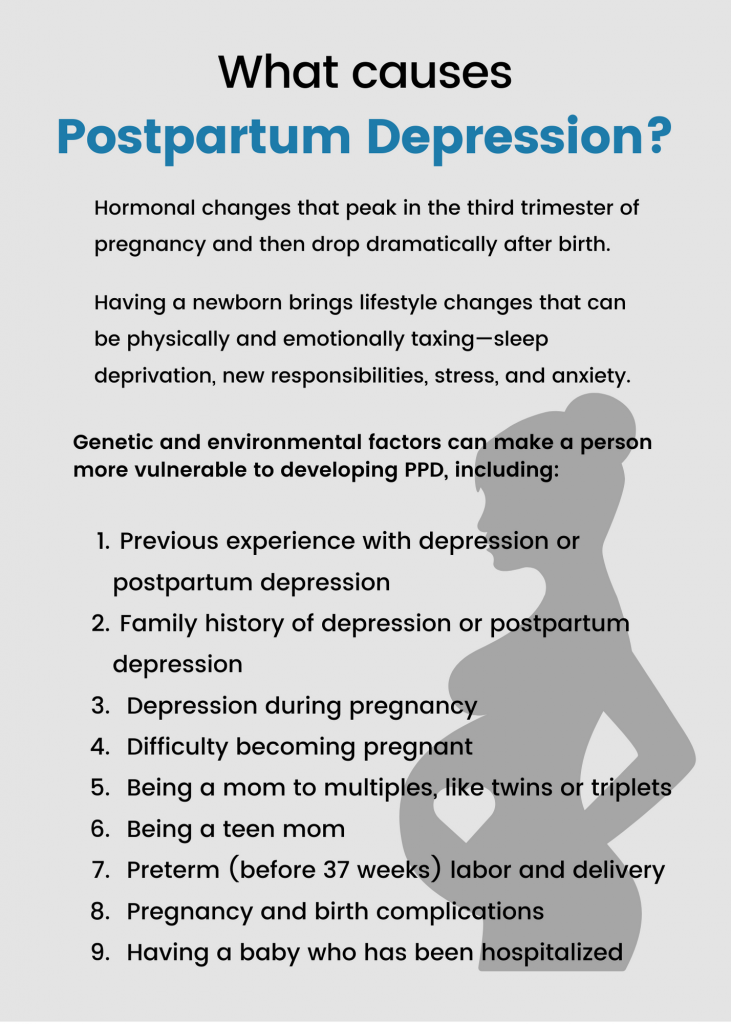 If you experience it after one pregnancy, you’re more likely to have it with the next. PPD affects everyone differently. You might have extreme highs and lows, anxiety, fatigue, irritability, or frequent crying. For some, the PPD is so severe that they cannot care for themselves or their babies. Many people associate this form of depression with those who have recently given birth, but that’s not always the case. It’s true that PPD usually appears in the week after the birth. Still, you can develop symptoms gradually for up to a year afterward. Some people experience PPD and don’t even realize it.
If you experience it after one pregnancy, you’re more likely to have it with the next. PPD affects everyone differently. You might have extreme highs and lows, anxiety, fatigue, irritability, or frequent crying. For some, the PPD is so severe that they cannot care for themselves or their babies. Many people associate this form of depression with those who have recently given birth, but that’s not always the case. It’s true that PPD usually appears in the week after the birth. Still, you can develop symptoms gradually for up to a year afterward. Some people experience PPD and don’t even realize it.Chronic sleep deprivation: A lot of things change when you have children, but the chronic lack of sleep might catch you off-guard. People tell you to sleep when the baby sleeps. But what if it feels like the baby never sleeps? Chronic sleep deprivation has many consequences and puts you at an increased risk for depression.
Stress: You’re changing diapers, potty training, feeding, cleaning, doing laundry, helping with homework, and doing a million other things all day, every day.
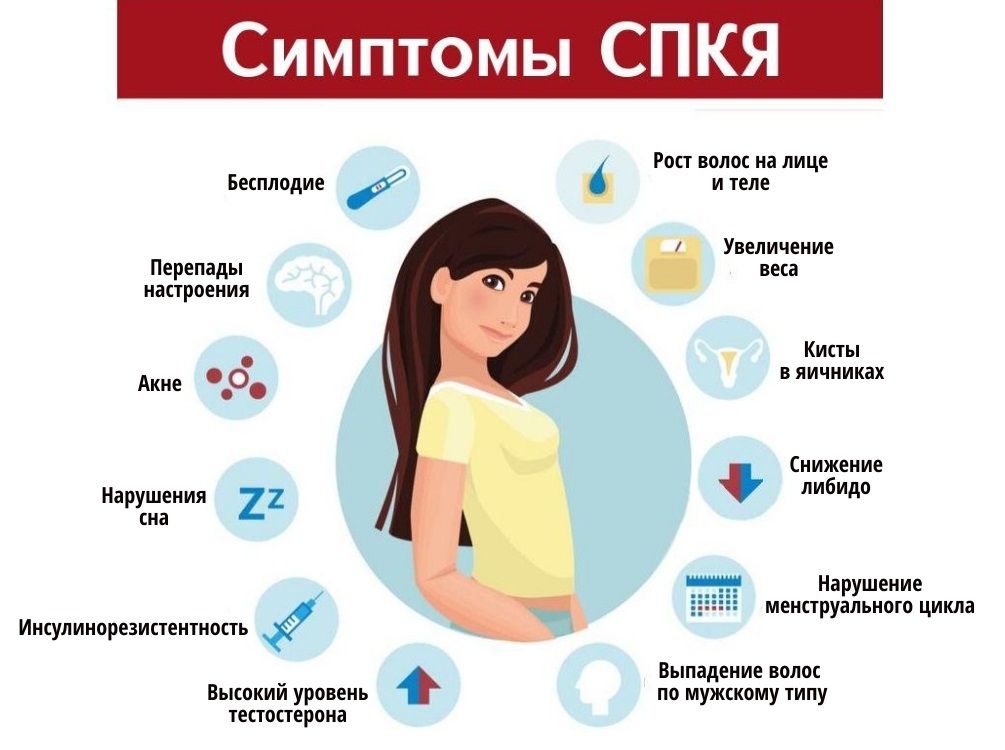 These are some of the environmental stressors that make being a parent stressful.
These are some of the environmental stressors that make being a parent stressful.
More serious, however, are psychosocial stressors: the ones underlying these everyday stressors. These include the stress of giving birth, being in a new role as a parent, or the relationship with your partner changing. Some people are more vulnerable to these stressors. For those people, when the stress becomes increasingly overwhelming, it can lead to depression.
What might make you more vulnerable? The big risk factors are having a personal or family history of depression, not having friends or family around to help or support you, or having other stressors at the same time.
The Stigma of SAHM Depression
The general stigma around depression may finally be shrinking in recent years, but this trend doesn’t necessarily apply to stay-at-home moms. Many people—including SAHMs currently experiencing depression—think that parents who get to stay at home with their kids are lucky.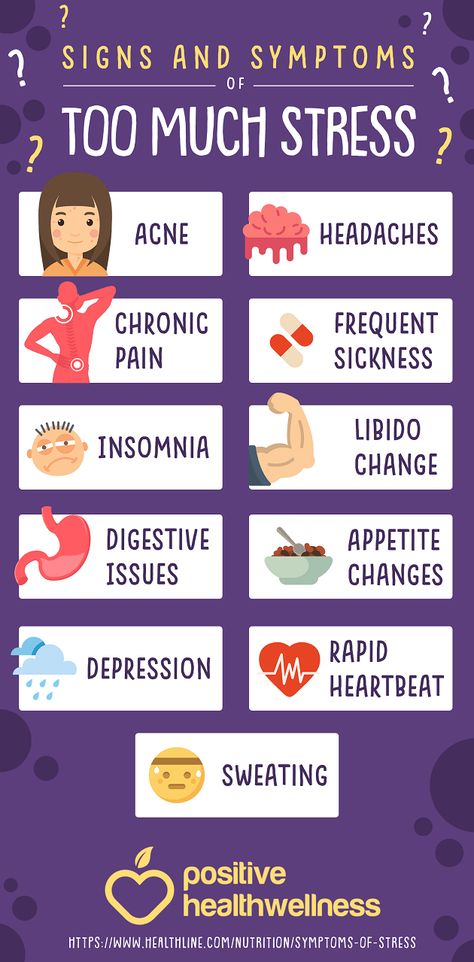 Stay-at-home mothers should be grateful, or so the thinking goes. What is there to be sad about? They "don’t have to work anymore," and they get to spend all day with their kids.
Stay-at-home mothers should be grateful, or so the thinking goes. What is there to be sad about? They "don’t have to work anymore," and they get to spend all day with their kids.
But SAHM depression is complicated. Many things contribute to it—brain chemistry, hormones, and inherited traits—which you can’t control. If you’re a SAHM with depression, it’s crucial to understand that it’s not your fault, and it’s not something you can change through sheer willpower.
The Numbers: SAHM Depression Statistics
The COVID-19 pandemic created a lot of stay-at-home moms. In April 2020, 45% of moms of school-aged children were not actively working, according to the Census Bureau. By January 2021, more than 18.5 million mothers living with their own school-age children were actively working, but that was still 1.6 million fewer than the pre-pandemic total in January 2020.
Research indicates that SAHMs are not as happy as either working moms or working women without children.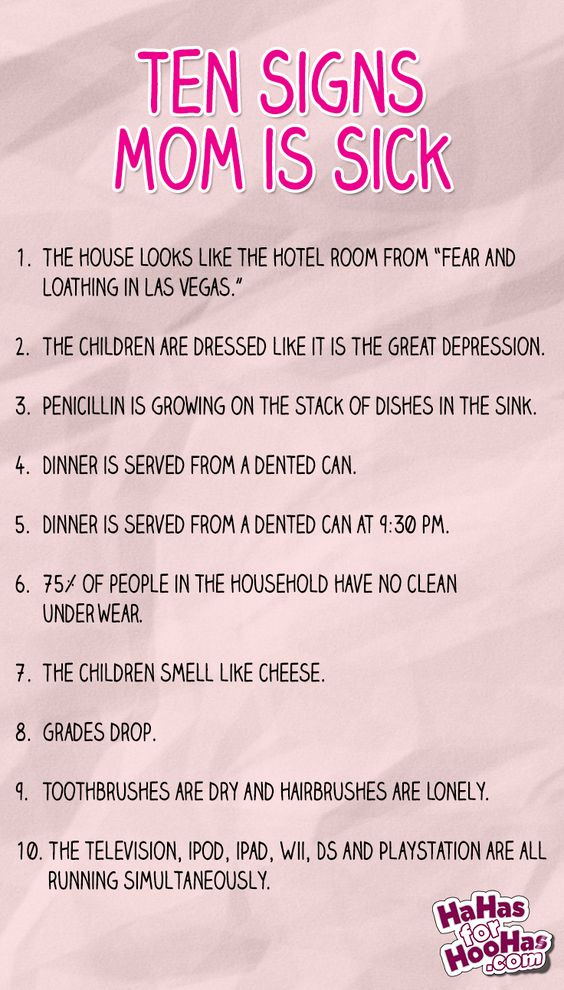 In that 2012 Gallup survey:
In that 2012 Gallup survey:
28% of stay-at-home moms reported feelings of depression, compared to 18% of working moms and working women without children
81% of SAHMs said they smiled a lot compared to 86% of employed moms
86% of SAHMs reported being happy compared to 91% of working moms
These figures are even more striking when looking at households with annual incomes of less than $36,000. Only 77% of SAHMs in these families reported smiling a lot, compared to 84% of working moms and working women without children.
How Does Mom’s Depression Affect Families?
A mother with depression affects her family in many ways, whether the depression sets in before, during, or after pregnancy. Stay-at-home moms with depression may not be able to keep up with laundry or load the dishwasher every day, but it ultimately affects families far beyond small daily disruptions.
During pregnancy, women with depression produce more stress hormones, which can affect fetal growth and lead to premature labor.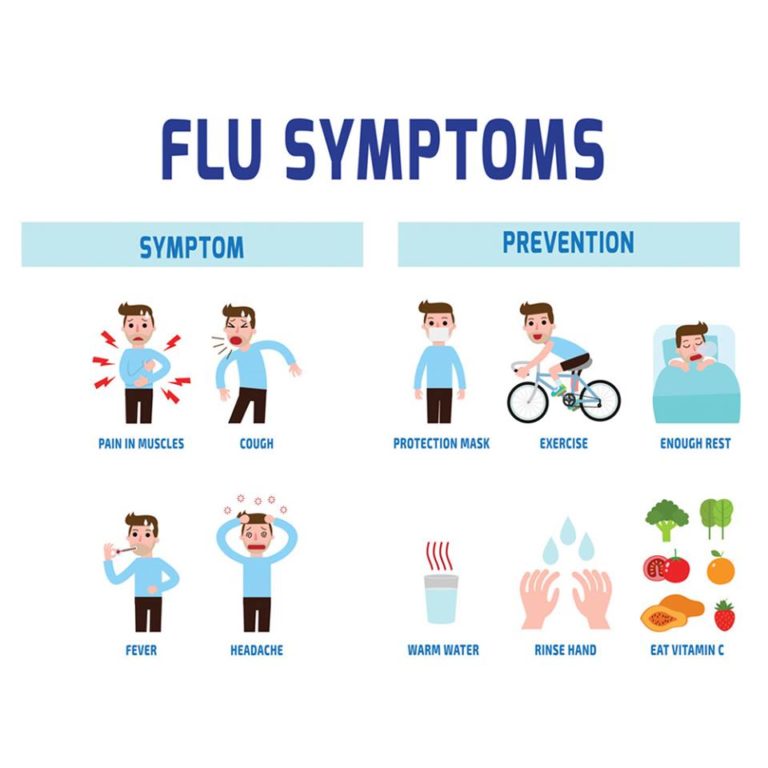 After birth, there are different challenges. How a mother with postpartum depression cares for her infant has a significant effect. Mothers who are withdrawn or hostile are linked to anxious and withdrawn behavior in their children.
After birth, there are different challenges. How a mother with postpartum depression cares for her infant has a significant effect. Mothers who are withdrawn or hostile are linked to anxious and withdrawn behavior in their children.
Having a mother with depression can also affect children later in life. For one thing, it influences academic performance. Having a mother with depression can also affect a child’s IQ and negatively affect their cognitive development through age 16.
Inherited traits contribute to depression, so these mothers may pass their vulnerability to depression on to their children. Teenagers of mothers who were depressed before pregnancy are as much as 4.7 times more likely to develop depression; for teenagers of mothers with postpartum depression, the risk is 7.4 times higher.
Signs You Might Be Depressed
While there are many types of depression, they share several recognizable symptoms.
Persistent feelings of sadness, hopelessness, worthlessness, or emptiness
Irritability, frustration, or restlessness
Loss of interest in activities or hobbies that used to be enjoyable
Difficulty sleeping
Lack of energy
Difficulty thinking clearly, remembering, concentrating, or making decisions
Appetite or weight changes
Recurrent thoughts of death or suicide
Headaches, stomachaches, or back pain
Experts say that having something to look forward to is essential for feeling happier—and it doesn't have to be anything major (i.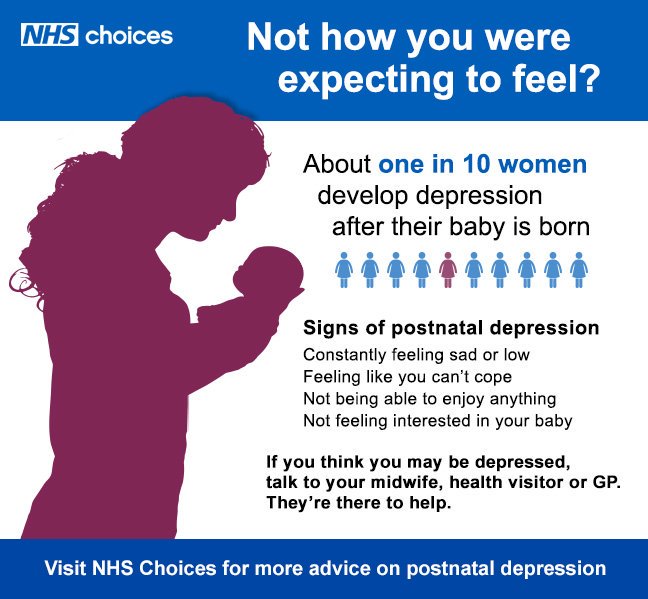 e. a vacation). It could be as small as getting coffee with a friend. The trouble is the vast majority of SAHMs have no break in the child care routine, and that gets depressing.
e. a vacation). It could be as small as getting coffee with a friend. The trouble is the vast majority of SAHMs have no break in the child care routine, and that gets depressing.
In the meantime, here are a few ways you can do to ease your anxiety and the feeling of isolation:
Make plans. If you’re at home full-time with your children, reach out to other moms to deliberately make time for activities that don’t involve the kids. Playdates with kids are great, but adult time is just as important.
Remember what you’re passionate about. It’s so easy to get sucked into the quicksand that is laundry, grocery shopping, bottle preparing, story time; but there is a you in there—that person you knew before kids who loved going to the movies, who read every Elena Ferrante book in English and Neapolitan, who wouldn’t miss a PINK concert.
Screw social media. Those posts with the spotless kitchen, happy children reading by themselves in a living room depleted of toys while your own home looks like a special season where Hoarders meets Fisher-Price, they’re not helpful.
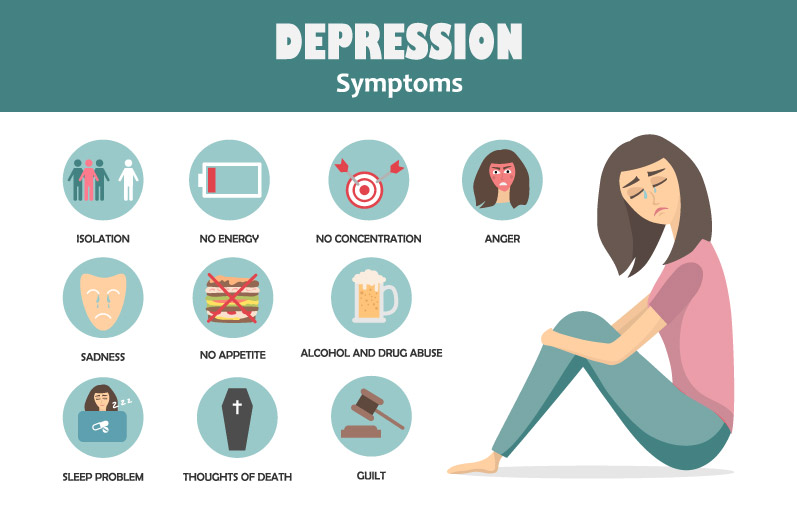 And, 90% of the time, they’re BS. “Tune out messages that tout the idea that all moms should have a spotlessly clean house and want to be with their children 24/7,” says Katherine Foss, PhD, associate professor of media studies in the school of Journalism and Strategic Media at Middle Tennessee State University.
And, 90% of the time, they’re BS. “Tune out messages that tout the idea that all moms should have a spotlessly clean house and want to be with their children 24/7,” says Katherine Foss, PhD, associate professor of media studies in the school of Journalism and Strategic Media at Middle Tennessee State University.Pencil yourself in. Schedule predetermined, designated times when you get some alone time. “If you know you are going to yoga at 4 o’clock, this can be tremendously helpful,” says Dorfman. Can’t afford the cost of a sitter? Consider a babysitting swap with another family.
Make a date. It sounds cliché, but it’s true.
Join a moms’ group. “Developing some kind of a community with other stay-at-home mothers can be so helpful because you get to compare notes with other moms and just share some of the feelings that you are experiencing,” Dorfman says.
Depression Treatment Options
If you’re a SAHM, there are many things you can do to cope with depression, but there are two main ways to treat it: therapy and medication.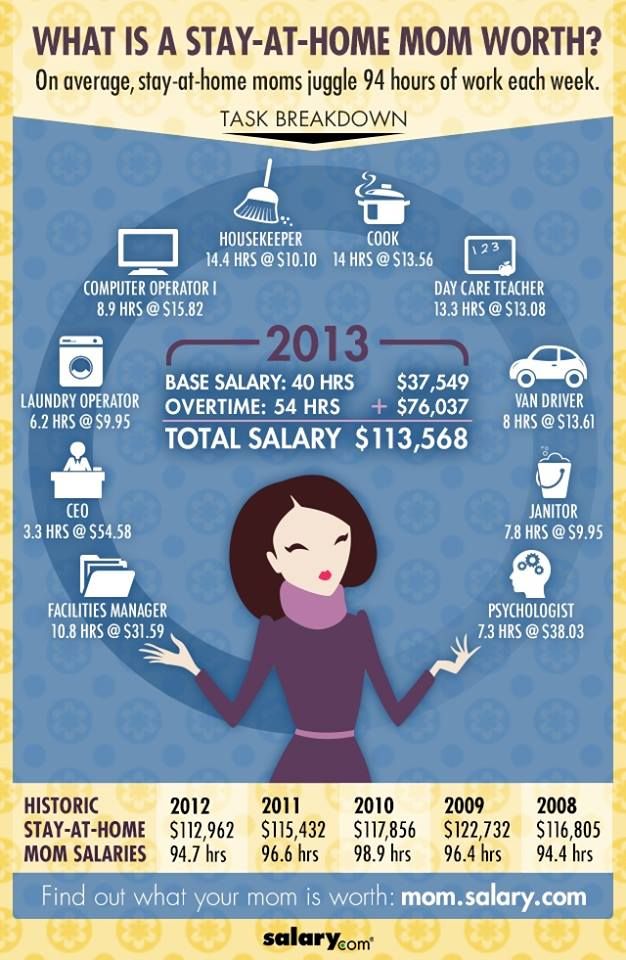 Many people find it’s helpful to combine these two treatments.
Many people find it’s helpful to combine these two treatments.
There are several classes and types of antidepressant medications. Health care providers usually prescribe selective serotonin reuptake inhibitors (SSRI) first. They’re safer and have fewer unpleasant side effects for most people than other classes of drugs.
If an SSRI doesn’t work for you, the next step might be a tricyclic antidepressant, though these types of drugs tend to have more side effects.
Sometimes, finding the right drug or combination of drugs that work takes a while. Your physician or a psychiatrist can help find the right medication or combination of medications that works best for you.
While prescription medications can do a lot to curb the symptoms of depression, they’re not a cure. Antidepressants alter brain chemistry, but the effects are only temporary. If you stop taking the medication, your brain chemistry returns to its previous state.
That doesn’t mean that antidepressants don’t work.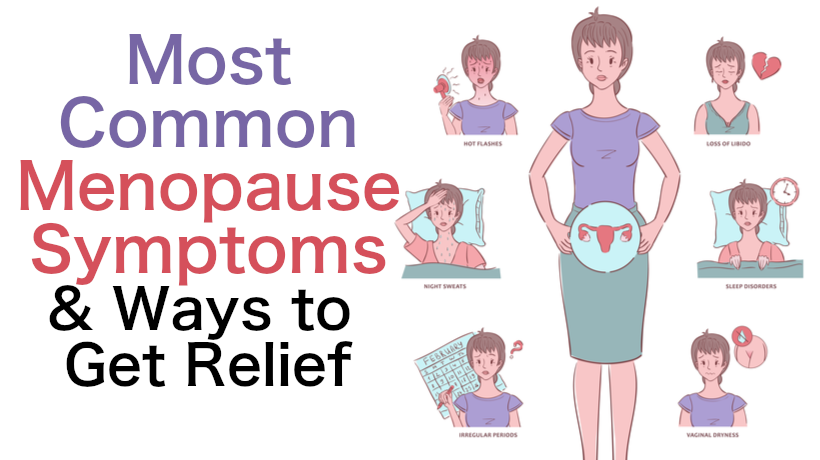 Quite the contrary—many people use these medicines for years and get long-term relief from depression symptoms. But research shows that combining antidepressants with therapy is more helpful than just taking antidepressants alone.
Quite the contrary—many people use these medicines for years and get long-term relief from depression symptoms. But research shows that combining antidepressants with therapy is more helpful than just taking antidepressants alone.
The most common therapies for depression are cognitive behavioral therapy (CBT) and interpersonal therapy (IPT). CBT is a type of talk therapy that aims to change a person's unhelpful thought and/or behavior patterns. In it, a therapist and client work together on practical coping skills for difficult situations in life, and on finding more helpful behaviors or thought patterns to replace problematic ones.
Interpersonal therapy is a more structured and time-limited approach. In this therapy, you and your therapist focus on stressful events from your life that have caused or exacerbated the current symptoms of depression. IPT focuses on building social support and improving the quality of your relationships.
Stay-at-home mom depression is real.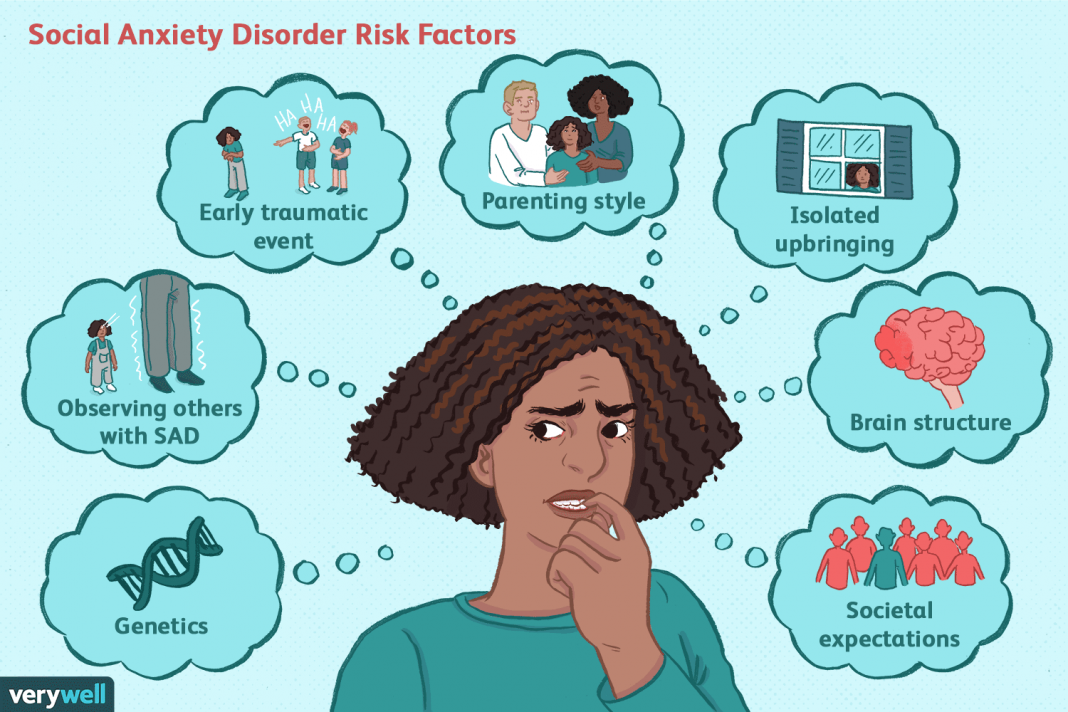 It’s tempting to blow it off as just being tired or frustrated, or to think you really shouldn’t be complaining and that other moms have it a lot harder. But, go into any SAHM chat room and you’ll see thread after thread of similar voices.
It’s tempting to blow it off as just being tired or frustrated, or to think you really shouldn’t be complaining and that other moms have it a lot harder. But, go into any SAHM chat room and you’ll see thread after thread of similar voices.
Gallup (2012). “Stay-at-Home Moms Report More Depression, Sadness, Anger.”
Saxbe DE, Schetter CD, Guardino CM, et al. Sleep Quality Predicts Persistence of Parental Postpartum Depressive Symptoms and Transmission of Depressive Symptoms from Mothers to Fathers. Ann Behav Med. 2016;50(6):862-875. doi:10.1007/s12160-016-9815-7
Center on the Developing Child Harvard University. Maternal depression can undermine the development of young children. Available at: https://developingchild.harvard.edu/wp-content/uploads/2009/05/Maternal-Depression-Can-Undermine-Development.pdf. Accessed September 21, 2022.
Chun-Hoon W. 5 facts on Moms, work and COVID-19. US Department of Labor Blog. Available at: https://blog.dol.gov/2021/05/06/moms.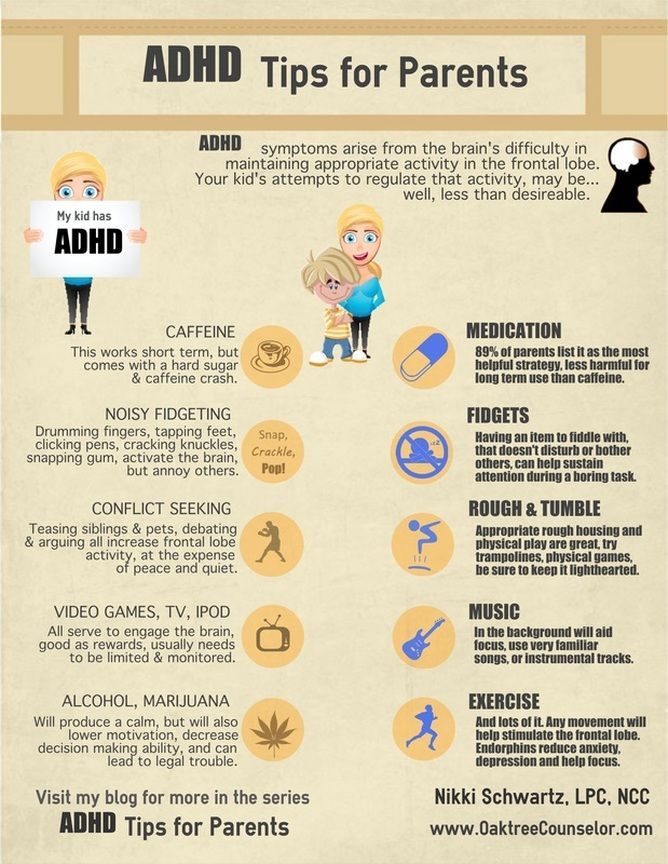 Published May 6, 2021. Accessed September 21, 2022.
Published May 6, 2021. Accessed September 21, 2022.
Cuijpers P, Donker T, Weissman MM, Ravitz P, Cristea IA. Interpersonal Psychotherapy for Mental Health Problems: A Comprehensive Meta-Analysis. Am J Psychiatry. 2016;173(7):680-687. doi:10.1176/appi.ajp.2015.15091141
Harvard Health Publishing. Medication or therapy for depression? Or both? Available at: https://www.health.harvard.edu/staying-healthy/medication-or-therapy-for-depression-or-both. Published May 26, 2020. Accessed September 22, 2022.
Johns Hopkins Medicine. Sleep deprivation. Available at https://www.hopkinsmedicine.org/health/conditions-and-diseases/sleep-deprivation. Accessed September 20, 2022.
Batt MM, Duffy KA, Novick AM, Metcalf CA, Epperson CN. Is Postpartum Depression Different From Depression Occurring Outside of the Perinatal Period? A Review of the Evidence. Focus (Am Psychiatr Publ). 2020;18(2):106-119. doi:10.1176/appi.focus.20190045
Livingston, G. Stay-at-home moms and dads account for about one-in-five U. S. parents. Pew Research Center. Available at: https://www.pewresearch.org/fact-tank/2018/09/24/stay-at-home-moms-and-dads-account-for-about-one-in-five-u-s-parents/. Published September 24, 2018. Accessed September 21, 2022.
S. parents. Pew Research Center. Available at: https://www.pewresearch.org/fact-tank/2018/09/24/stay-at-home-moms-and-dads-account-for-about-one-in-five-u-s-parents/. Published September 24, 2018. Accessed September 21, 2022.
United States Census Bureau. Moms, Work and the Pandemic. Available at https://www.census.gov/library/stories/2021/03/moms-work-and-the-pandemic.html. Last revised March 3, 2021. Accessed September 24, 2022.
Tafet GE, Nemeroff CB. The Links Between Stress and Depression: Psychoneuroendocrinological, Genetic, and Environmental Interactions. J Neuropsychiatry Clin Neurosci. 2016;28(2):77-88. doi:10.1176/appi.neuropsych.15030053
Tirumalaraju V, Suchting R, Evans J, et al. Risk of Depression in the Adolescent and Adult Offspring of Mothers With Perinatal Depression: A Systematic Review and Meta-analysis. JAMA Netw Open. 2020;3(6):e208783. doi:10.1001/jamanetworkopen.2020.8783
Pescosolido BA, Halpern-Manners A, Luo L, Perry B. Trends in Public Stigma of Mental Illness in the US, 1996-2018. JAMA Netw Open. 2021;4(12):e2140202. doi:10.1001/jamanetworkopen.2021.40202
JAMA Netw Open. 2021;4(12):e2140202. doi:10.1001/jamanetworkopen.2021.40202
Wu V, East P, Delker E, et al. Associations Among Mothers' Depression, Emotional and Learning-Material Support to Their Child, and Children's Cognitive Functioning: A 16-Year Longitudinal Study. Child Dev. 2019;90(6):1952-1968. doi:10.1111/cdev.13071
Notes: This article was originally published January 22, 2020 and most recently updated October 17, 2022.
Rosemary Black
Rosemary Black is a veteran journalist who has written about food, health, fitness, and parenting for more than 25 years. A former senior editor at Everyday Health, she was food editor for the New York Daily News and Parade's Dash magazine. Rosemary, the author of four cookbooks, has written for QualityHealth.com and various other websites and magazines. The mom of 7 lives with her family in Westchester County, New York.
symptoms, causes in men and women, remedies
Lack of vitality, unwillingness to get out of bed, bad mood for a long time, and even unwillingness to live are all signs of depression. Depression has a negative effect on the health and general well-being of a person. That is why it is so important to get medical help from a specialist in time.
Depression has a negative effect on the health and general well-being of a person. That is why it is so important to get medical help from a specialist in time.
How to determine the presence of depression?
Pathology can appear after experienced stressful situations. If there is no disorder, after the problem is resolved, a good mood returns to the person. But when the cause is eliminated, and apathy, depression and loss of strength do not leave the person, it is necessary to seek help from a specialist. It may also decrease performance. nine0003
You can determine the presence of depression on your own, but you should not self-medicate even at an early stage of development. This should be done by a doctor, since self-medication can only aggravate everything.
Depression in women is often postpartum, as their lives change dramatically, and sleepless nights add fatigue. This is where frustration and apathy come in.
When the pathology is in advanced form, then a person has the following symptoms of depression - not only a bad mood and impotence, but also persistent disorders of the nervous system.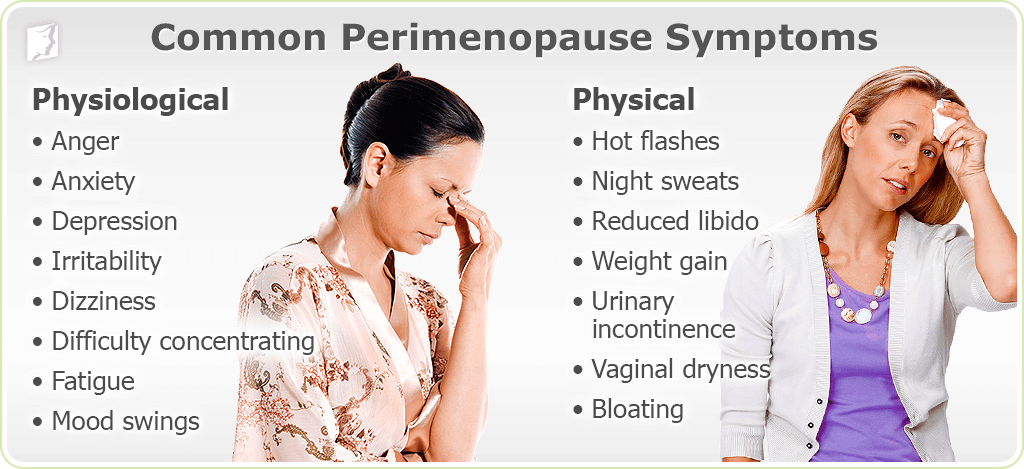 There are also symptoms such as: a significant decrease in self-esteem, disadaptation in society, despondency and loss of interest in any events. nine0003
There are also symptoms such as: a significant decrease in self-esteem, disadaptation in society, despondency and loss of interest in any events. nine0003
In physiological terms, appetite changes, intimate needs and energy decrease, sleep and bowel function are disturbed (constipation, weakness, fatigue during physical and intellectual stress are observed), pain in the body (in the heart, in muscles, in the stomach area).
The patient shows signs of depression such as loss of interest in other people, a tendency to frequent solitude, refusal of entertainment, use of alcohol and psychotropic substances. nine0003
Mental signs of depression include difficulty in concentrating, concentrating, making decisions, slowness of thinking, a pessimistic view of the future with a lack of perspective and thoughts about the meaninglessness of one's existence, suicide attempts, due to their uselessness, helplessness, insignificance.
Causes of depression
The appearance of the disorder is not influenced by age category or social class.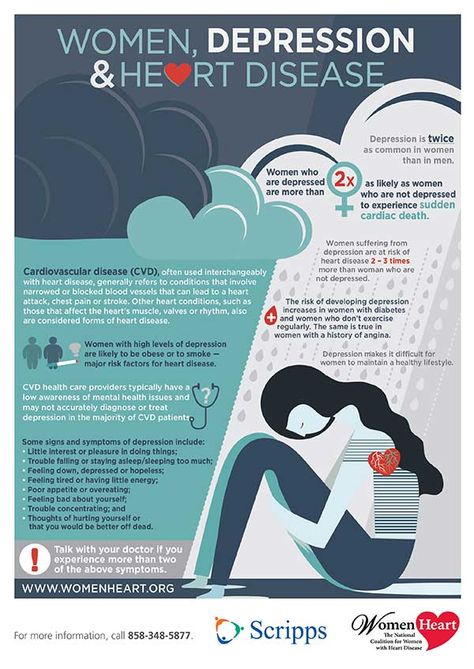 Most often, depression appears against the background of stressful negative situations, with constant failures - then a person falls into despair from the inability to somehow influence the course of events. nine0003
Most often, depression appears against the background of stressful negative situations, with constant failures - then a person falls into despair from the inability to somehow influence the course of events. nine0003
But in addition to the social factor, severe psychological trauma can also lead to the development of depression, for example: family breakup, death of a loved one, a serious illness that affects not only the patient himself, but also his relatives. In this case, depressions are referred to as reactive.
The likelihood of depression increases with changes in hormonal levels: during adolescence, after delivery, with the onset of menopause, and also in old age. It can affect the emotional and physical level. nine0003
Another factor is brain damage and somatic pathologies. Often depression affects patients who have had a stroke, suffering from a chronic lack of blood circulation in the brain, after a traumatic brain injury.
The causes of depression can manifest themselves as a result of the side effects of drugs (benzodiazepines, corticosteroids).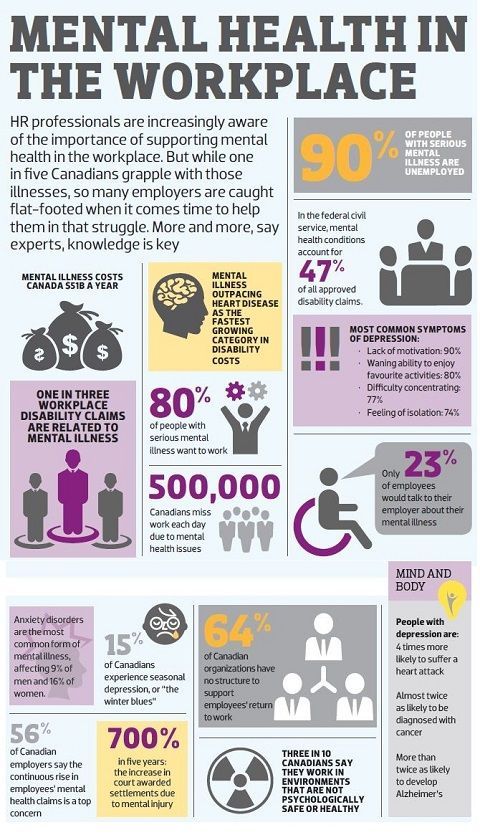 Often this condition disappears on its own after the drug is discontinued.
Often this condition disappears on its own after the drug is discontinued.
Types of depression
-
Neurotic - people with low self-esteem, insecure, straightforward people often suffer. They constantly feel a sense of injustice, and apathy arises from this.
-
Clinical - bad mood, loss of energy, problems with appetite and sleep. Often there is a tendency to suicide. This clinical picture can last at least 2 weeks.
nine0035 -
Psychogenic - develops after severe psychological trauma - divorce, loss of a loved one, dismissal from work, betrayal, etc. Accompanied by mood swings, anxiety, excessive sensitivity.
-
Masked - often the disease manifests itself secretly. Apathy, solitude and a decrease in interest in life can only appear as negativity and fatigue accumulate. nine0003
-
Asthenic - the condition is manifested by fatigue, sleep disturbance, emotional imbalance due to accumulated difficulties, stress, physical and psychological stress.

-
Postpartum - usually occurs 10-14 days after delivery. A young mother shows an increased sense of excitement for the baby, and constant lack of sleep and fatigue worsen the situation even more. In addition, the hormonal background also affects the state of the mother. nine0003
-
Somatogenic - attacks occur due to disturbances in the endocrine system, the formation and growth of neoplasms, both benign and malignant.
-
Alcoholic - depression is accompanied by excessive consumption of alcoholic beverages. The post-alcohol state is accompanied by an uncontrolled craving for alcohol and the growth of withdrawal syndrome when alcohol is refused. nine0003
-
Bipolar - the patient is changing euphoria depressive, manic disorder. But in the period between these phenomena, caused by various factors: stress, loss of means of popularity, etc., a person lives an ordinary life and does not show symptoms of the disease.

Vegetative - manifested by such signs as tachycardia, a drop in blood pressure, tinnitus.
How does depression develop in stages?
First, the patient has a depressed state, which he himself attributes to fatigue, a hard working week, drinking alcohol and other reasons. At the same time, he wants to retire from others and at the same time is afraid to be alone. nine0003
Then the stage of acceptance arises: the awareness of the dangerous state comes, the problem worsens, the intensity of negative thoughts grows, the body and the immune system fail.
The third stage - in the absence of adequate therapy, the patient loses control over himself, aggression increases.
Diagnosis and treatment of depression
-
To identify the disease, experienced specialists use short questionnaires - screening tools to identify symptoms: anxiety, anhedonia (loss of pleasure from life), suicidal tendencies. Thanks to this, it is possible to determine whether the patient has chronic depression, symptoms and treatments for depression, what form and severity it is.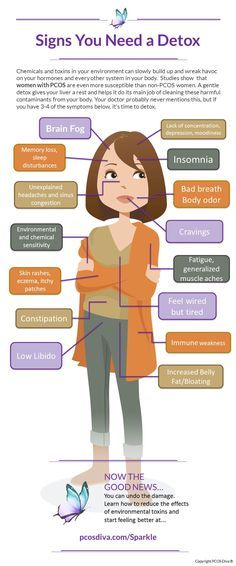 nine0003
nine0003
To fully understand the picture of the disease, the doctor needs to familiarize himself with the symptoms that indicate depression, and not another psychological disorder.
For the treatment of depression, you can contact the following specialists:
-
Psychiatrist - treatment of depression with hypnosis, drugs for acute mental pathologies - schizophrenia, mental retardation, epilepsy, as well as other less severe ailments - neurosis, depression, alcoholism, drug addiction, etc. nine0003
-
Psychotherapist – treatment is carried out through special therapy, which provides for explanations, conversations, search for solutions to problems together with the patient.
-
Psychologist - consults the patient, cannot prescribe drugs and examinations. Clinical psychologists use modern test methods to identify problems that caused a psychological disorder.
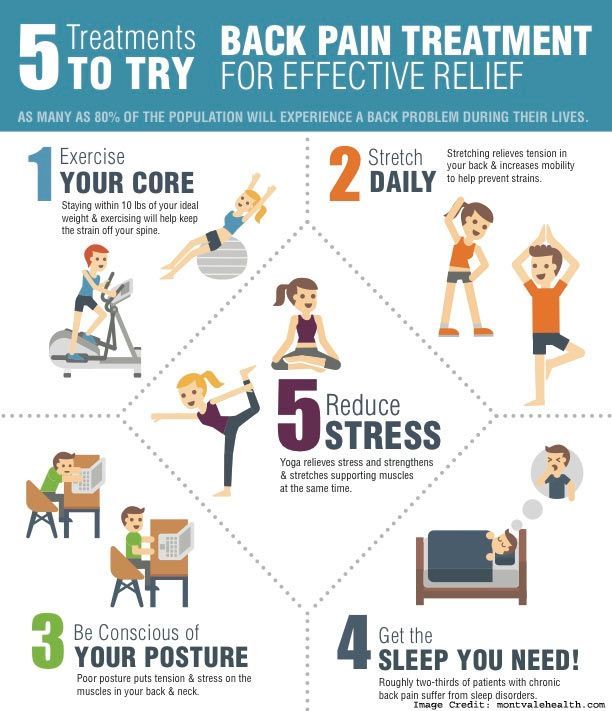 nine0003
nine0003
The main directions of therapy in treatment are psychotherapy, pharmacotherapy, social therapy.
A necessary condition for the effectiveness of treatment is cooperation and trust in the doctor. It is important to strictly follow the prescription of the therapy regimen, visit the doctor regularly, and give a detailed account of your condition.
Preparations for the treatment of depression
-
For the treatment of the disorder, antidepressants are used for anxious depression or when the pathology is accompanied by lethargy. Antidepressants are prescribed directly by a doctor and are not recommended for self-administration. The action of many antidepressants manifests itself two weeks after administration, their dosage for the patient is determined individually. nine0003
In bipolar depression, depression is treated with insomnia. While it has a negative effect on a healthy person, in a patient with a psychological disorder, sleep deprivation, on the contrary, brings the psyche back to normal.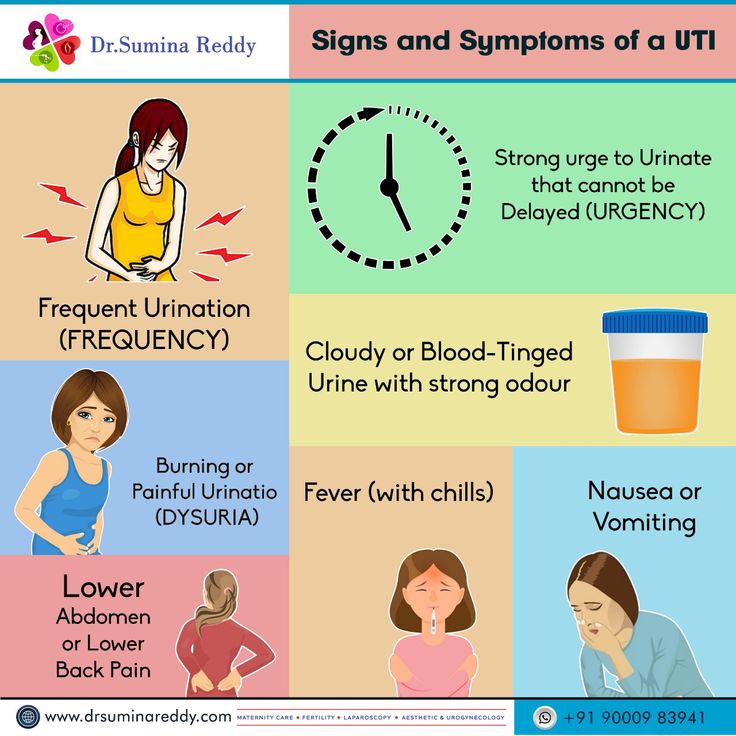
Moderate or mild depression requires the appointment of drugs on a light, natural basis (herbal).
Where to get tested and treated for depression in Krasnoyarsk?
If you or your loved ones show signs of an emotional disorder, you should immediately contact a specialist. Since depression can lead to dangerous consequences: nine0003
-
isolation from society
-
deterioration in appearance
-
relationship problems
-
low performance or its complete absence
-
sexual problems
Contact the private clinic "Medunion" in Krasnoyarsk, get examined and treated for depression. Our phone number for appointment +7 (391) 202-95-54.
How to survive postpartum depression | FGBUZ MCh No. 135 FMBA of Russia
The birth of a child is a wonderful period in a woman's life.
Nine months of waiting are behind us, painful childbirth, and, it would seem, now nothing can overshadow the joys of motherhood!
But it is at this time that most women face such a problem as postpartum depression.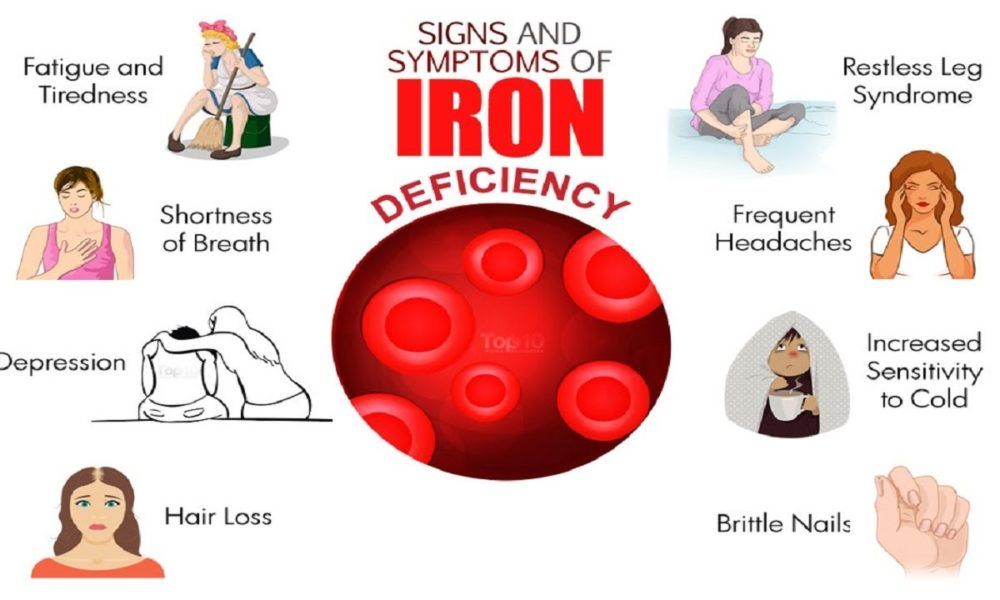 How to recognize and overcome it with the least loss for yourself and others?
How to recognize and overcome it with the least loss for yourself and others?
What is postpartum depression? nine0159
Despite the terrible name, postpartum depression in many women passes quickly and without consequences. As a rule, the first symptoms of this disorder appear on the 3-4th day after childbirth and reach their peak on the 5th day.
Postpartum depression manifests itself in excessive unreasonable tearfulness, irritability and aggression, at the same time, a depressed mood can abruptly change to a good one. A woman, ready to sob and scandal a minute ago, suddenly rushes to hug everyone, shower them with compliments and smile. Usually such a mild form of this disorder disappears without a trace after 2 weeks. If the condition of a young mother remains the same for a month or more, then we can talk about a severe form of postpartum depression. nine0003
Seek help if the following symptoms persist for a long time:
∙ loss of appetite, or, on the contrary, excessive appetite and overeating;
∙ tearfulness: any little thing causes anxiety, tears, and the crying of your own child - irritation and even hysteria;
∙ insomnia or restless disturbing dreams, the woman may wake up frequently for no apparent reason;
∙ irritability and aggression towards loved ones; nine0003
dissatisfaction with oneself, one's appearance;
∙ dissatisfaction with one's life, feeling one's failure as a mother;
∙ unwillingness to intimacy, lack of interest in life, former hobbies, close people.
In rare cases, postpartum depression develops into postpartum psychosis, where the mother may experience hallucinations, often related to the baby
. Also, a young mother may not control her actions, in these cases she needs outpatient treatment. nine0003
Treatment of postpartum depression
For effective treatment, it is necessary to accurately establish the diagnosis, excluding a number of diseases that manifest similar symptoms. When the doctor confirms the presence of postpartum depression, depending on the severity of the form, begin treatment.
A woman can cope with a mild form of postpartum depression on her own or with the help of relatives and close friends, or talk with a psychologist.
The first thing they recommend is breastfeeding . It has long been proven that when breastfeeding between mother and child, not only a close physical, but also emotional and psychological connection is established, this is due to the production of a hormone such as prolactin.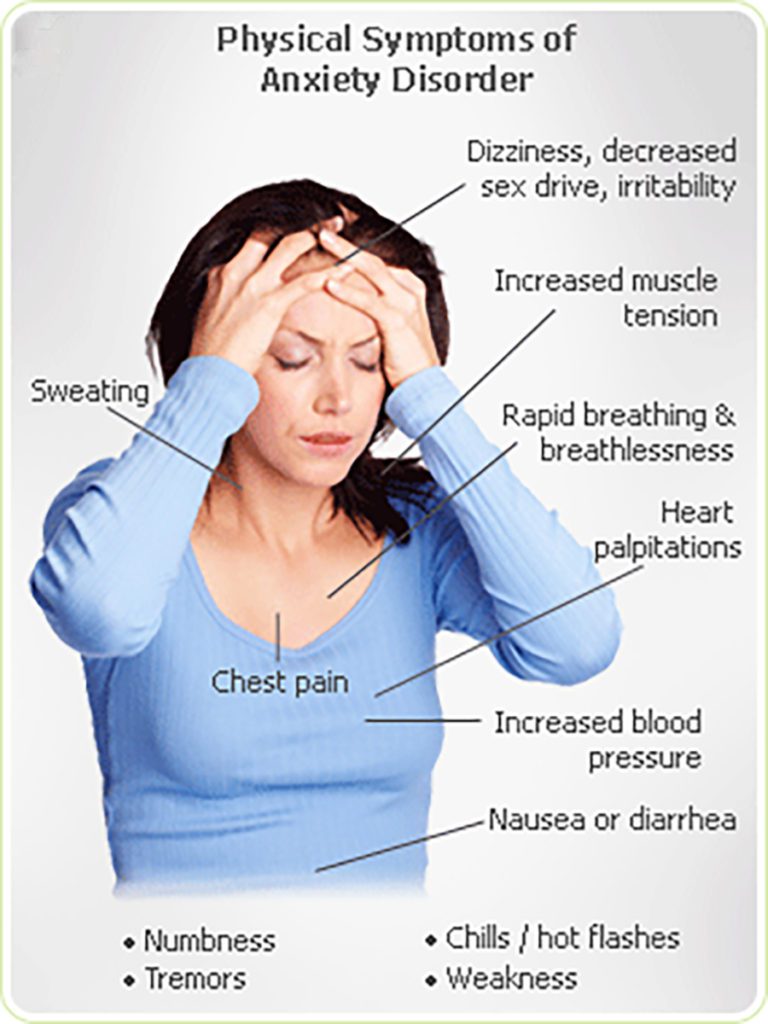 In addition, breastfeeding gives both pleasure, and also makes it easier for the mother to care for the child.
In addition, breastfeeding gives both pleasure, and also makes it easier for the mother to care for the child.
Do not close at home - try to communicate more with friends, make new acquaintances among young mothers, read books, listen to audio lessons, follow the news via the Internet. It is convenient to do all this on playgrounds, walking with a stroller. If this is not possible, then communication on thematic forums will help. nine0003
If you can, introduce a new hobby into your life . It is great if it is associated with moderate physical activity. For example, you can do yoga, it will not only help you quickly restore muscle tone, but also bring harmony into your life.
Drive away negative thoughts , set yourself up for positive thinking, look for pluses in your current position. For example, you can not go to work, but give all the attention and care to the baby. Also, if you think about it, you have the opportunity to learn something new or read an interesting book (while the baby is sleeping, her husband or grandmother is looking after him or you are walking on the street).
